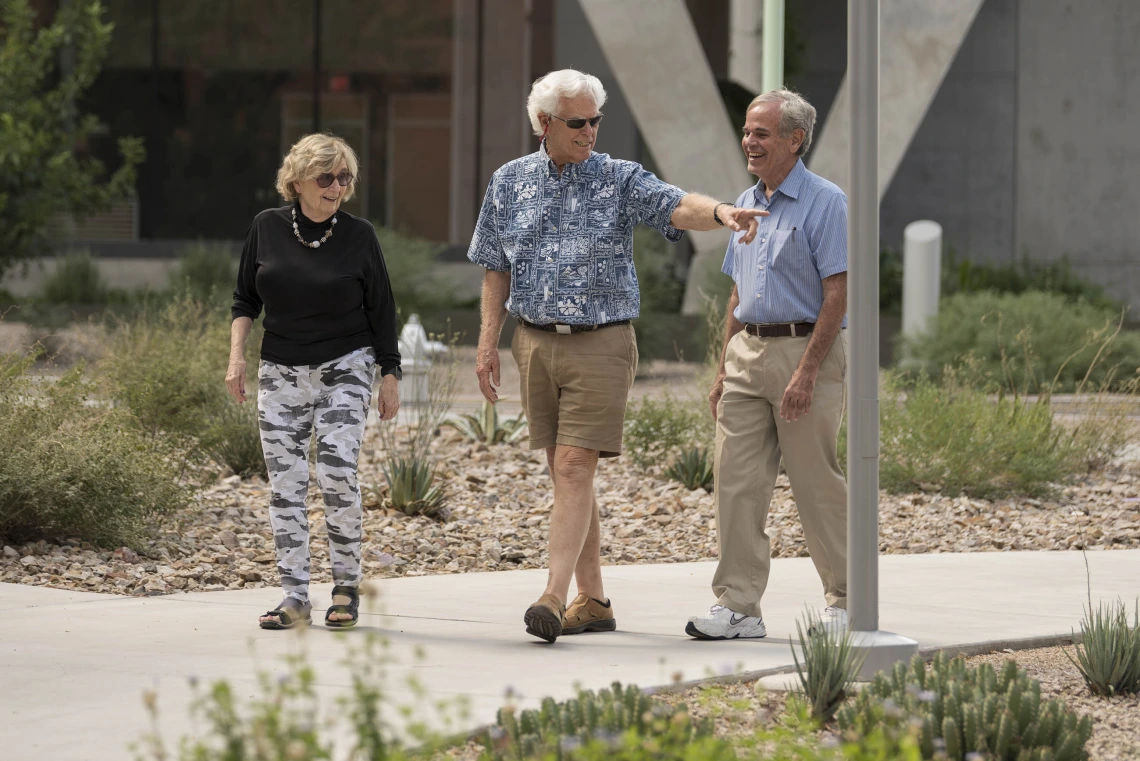UArizona designated an ‘Age-Friendly University’
A University of Arizona Health Sciences strategic initiative, research activities, educational opportunities and community events for older adults earn recognition.

A commitment to promote positive and healthy aging, such as through outreach programs that connect older adults to campus programs, led to the University of Arizona’s inclusion in the Age-Friendly University Global Network.
The University of Arizona has been named a member of the Age-Friendly University Global Network, a group of higher education institutions committed to promoting positive and healthy aging and enhancing the lives of older members of the global community. Innovations in Healthy Aging, a University of Arizona Health Sciences strategic initiative, led efforts to make the new designation possible.
The AFU Global Network is comprised of nearly 100 higher education institutions that commit to support 10 Principles of an Age-Friendly University. Each institution demonstrates a commitment to promote positive and healthy aging through innovative educational programs; research agendas; curriculum development; online education; health and wellness activities; arts and culture programs; and civic engagement opportunities.
“I am delighted the university is being recognized for its efforts to promote an age-friendly university. This designation reaffirms our commitment to optimizing health across the lifespan and addressing both the opportunities and challenges that come with aging,” said Kathleen Insel, PhD, RN, director of Innovations in Healthy Aging and a professor in the UArizona College of Nursing. “The AFU Global Network is doing the critical work needed to create new opportunities and innovative practices to meet the changing needs of society.”
According to Census Bureau data, the number of older adults in the United States grew by one-third over the last decade to more than 55 million. There was a 48% increase in Arizona’s older adult population during the same period.
Several Innovations in Healthy Aging programs support AFU principles, including its Healthy Aging Lecture Series, which features expert advice on aging through regularly scheduled hybrid presentations. The initiative also maintains an online list of research studies seeking older adult participation and offers events such as poetry circles, awe walking, and dance or movement instruction through its Aging and the Arts program.
“Innovations in Healthy Aging has built a multicollege and transdisciplinary network of researchers, professors and leaders to allow for greater distribution of information, multifaceted problem-solving and the ability to meet the needs of an aging population,” Insel said, adding that Innovations in Healthy Aging is providing an organizational framework and structure to facilitate the research and outreach work already being done by various programs, institutes and centers at the University of Arizona.
For example, the Arizona Center on Aging at the UArizona College of Medicine – Tucson has been promoting long, healthy and functional lives for older adults through research, education and training, clinical care and community engagement since it was established as a long-term care gerontology center funded under the Title IV-E Older Americans Act in 1980. The Osher Lifelong Learning Institute offers hundreds of classes, field trips and social events a year to adults 55 years of age and older, and the Arizona Arthritis Center at the College of Medicine – Tucson offers community outreach events, including lectures and activities on health and wellness. Additionally, the university’s Office of Continuing and Professional Education provides career training to lifelong learners, as well as programs and certificates in several age-related studies.
Census Bureau data suggest that by 2034, the number of Americans age 65 and older will outnumber those under 18 for the first time. The University of Arizona and other institutions belonging to the AFU Global Network are well positioned to share best practices, innovate new approaches and engage with an aging society.
Related Story
Contact
Phil Villarreal
UArizona Health Sciences Office of Communications
520-403-1986, pvillarreal@arizona.edu

